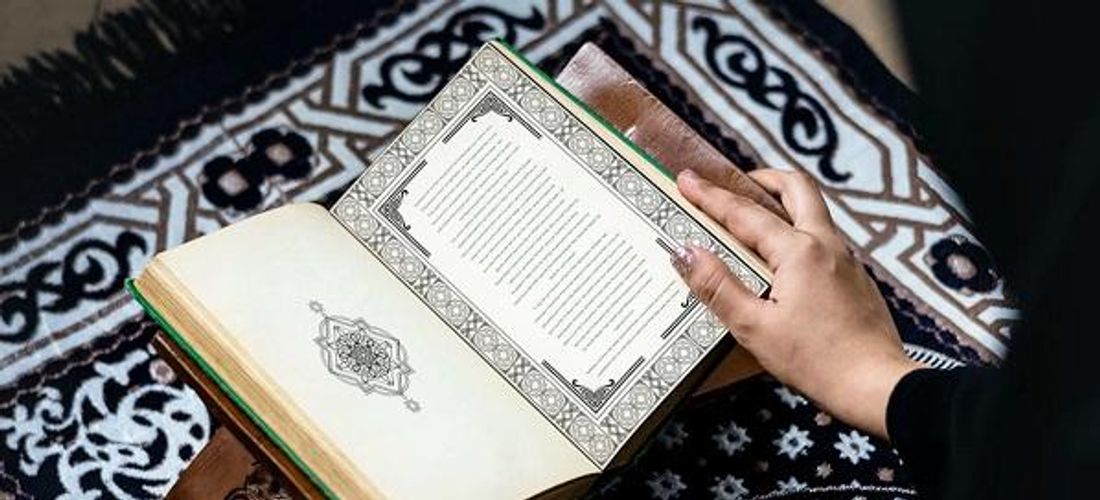10 Du'as to Sustain You in Times of Change and Calamities
Faith
|
Apr 21, 2020
|
5 MIN READ

By N.A. Mansour
Of the great literary and intellectual traditions we inherit as Muslims, one of the most accessible, yet highly charged, is du’a.As generations of Muslims spoke to and beseeched Allah (S) in the past to address specific needs, we speak to Allah (S) now, sometimes using those du'as from the past and sometimes praying from our hearts.
The du’as we utter during this particular time will take on some of the meaning of the COVID-19 pandemic and what we feel as we experience it; this gives it another layer of meaning as you speak to Allah (S) to pray for yourself, your loved ones and the ummah. Many of the du'as we’ve gathered here for you respond to times of need as well as to confront the harsh reality of everyday life in the dunya.
We hope this collection of 10 du’as to read during times of calamity and change reminds you of the du’as you’ve loved over the years. And, maybe you’ll even be introduced to a few new ones.

Image source: rawpixel
1. Allah, let me enjoy my hearing and my sight until they are relieved of me, maintain my faith and my body, let me be victorious over those who have wronged me. I submit myself to you, my lord. From the Hizb of Imam al-Nabulsi
A famed 18th century scholar from Damascus, Shaykh Abd al-Ghani al-Nabulsi wrote across many genres – travelogues, poems, handbooks on tasawwuf (the process of becoming a Sufi) – and he also wrote hizbs and wirds, different types of long-form invocations. This excerpt from a hizb of his has a little bit of everything we need right now – a call for physical health, mental health and social justice.
2. Allah does not charge a soul except [with that within] its capacity. It will have [the consequence of] what [good] it has gained, and it will bear [the consequence of] what [evil] it has earned. "Our Lord, do not impose blame upon us if we have forgotten or erred. Our Lord, and lay not upon us a burden like that which You laid upon those before us. Our Lord, and burden us not with that which we have no ability to bear. And pardon us; and forgive us; and have mercy upon us. You are our protector, so give us victory over the disbelieving people." (Quran 2:286; Sahih International translation)
لَا يُكَلِّفُ اللَّهُ نَفْسًا إِلَّا وُسْعَهَا ۚ لَهَا مَا كَسَبَتْ وَعَلَيْهَا مَا اكْتَسَبَتْ ۗ رَبَّنَا لَا تُؤَاخِذْنَا إِن نَّسِينَا أَوْ أَخْطَأْنَا ۚ رَبَّنَا وَلَا تَحْمِلْ عَلَيْنَا إِصْرًا كَمَا حَمَلْتَهُ عَلَى الَّذِينَ مِن قَبْلِنَا ۚ رَبَّنَا وَلَا تُحَمِّلْنَا مَا لَا طَاقَةَ لَنَا بِهِ ۖ وَاعْفُ عَنَّا وَاغْفِرْ لَنَا وَارْحَمْنَا ۚ أَنتَ مَوْلَانَا فَانصُرْنَا عَلَى الْقَوْمِ الْكَافِرِينَ
These verses from the Quran make frequent appearances in prescribed wirds because they are so packed with reminders we need to hear daily as well as a call for Allah (S) to forgive anything we might, despite all good intentions, forget.
3. Allah! I seek refuge in You from the evil of that which I have done and the evil of that which I have not done.Sunnah: Muslim
The pandemic has put pressure on all of us and despite our best intentions, we might not always behave in ways that are in compliance with the adab of our religion. This du’a, from the sunnah, can help remind us of the importance of good behavior while also directly asking Allah (S) for it.
4. Allah, strengthen the cause of the Prophet Muhammad, may peace be upon him, make shine the message he has brought to us and make shine his character. From Dala’il al-Khayrat.
Praying for the Prophet Muhammad (saw) is prescribed to us as Muslims in both the Quran and the sunnah. This snippet from Dala’il al-Khayrat, one of the most popular books of devotions in our tradition dedicated to the Prophet, reminds us of both his greater cause and his character, both of which serve as inspirations.

5. Allah, give us the hope that we ask for, give us hope beyond even that. From Hizb al-Nasr by Shaykh Abu Hasan al-Shadhili
Part of the larger collection of hizbs left to us by Shaykh Abu Hasan al-Shadhili, the founder of the Shadhili tariqa (one of the largest of Sufi orders), the rest of the hizb is traditionally prescribed for times of oppression and fear as well as sickness. There are also multiple recitations of the Shadhili hizbs that you can listen to, such as this one.
6. Lord, lift up my heart and ease my task for me. (Quran 20:25-26; Abdul Haleem translation)
رب اشرح لي صدري ويسر لي أمري
The Prophet Musa (ra) said these words to Allah before going to confront Firaun. I was taught to recite it as a child before any major challenges I anticipated: My father taught it to me for school exams. Prophet Musa’s bravery, no matter the challenge, is an example for us all.
7. Smooth out strife and strain. Ease the hardship and the pain. In your name we pray, Allah. Grant good health and long life! Please guide us aright! Bless us with success, Allah. From al-Sindid (The Valiant One) by Shaykh Mbacke, adapted from the translation by Rudolph Ware)
This selection is from a longer praise poem by Shaykh Mbacke, a 19th century shaykh of the Muridiyya tariqa (another Sufi order), and was written after the death of his mother, whom he mentions in the poem. I recommend eventually reading the poem in its entirety as well as his other work: al-Sindad is multi-faceted and includes personal invocations and the mentions of other Prophets.
8. O You to Whose mercy one flees! You in Whom the one in need and distress seeks refuge! We seek Your help, O You who help the weak! You are enough for us, O Lord! From Du’a al-Nasiryya, adapted from the translation by Shaykh Hamza Yusuf.
These lines – part of a larger poem – were written explicitly during times of foreign aggression and was allegedly so popular that the French banned it. They can sooth our feelings of hopelessness but also remind us of the systemic injustice that is making the global pandemic even more horrific for many populations.
9. Allah, I praise you for this body when it is capable of motion and I thank you for this ailment that arises in my flesh. ... for one is a delight ... and one is a test. Paraphrased from al-Sahifa al-Sajjadiya by al-Imam Ali Zain al-Abideen (ra).
We have different examples of Allah (S) testing those He loves dearly throughout our history; this du’a is a reminder to always be thankful, no matter if what we have most delighted in has passed from our lives.
10. Speak from your heart.
No matter what, no matter how many du’as you read from the Quran, sunnah, or the vast collection of Muslim literary tradition, always make time to just directly speak to Allah from your heart with respect, gratitude and hope. Get creative and write down what you come up with for use in the future. And when you cannot find the words, let your heart just reach towards Allah (S).
N.A. Mansour is a historian and a PhD candidate at Princeton University’s Department of Near Eastern Studies, where she is writing a dissertation on the transition between manuscript and print in Arabic-contexts. She produces podcasts for the Middle East Studies Channel on the New Books Network, for the Maydan and co-edits Hazine.info, an archives blog.
Subscribe to be the first to know about new product releases, styling ideas and more.
What products are you interested in?

